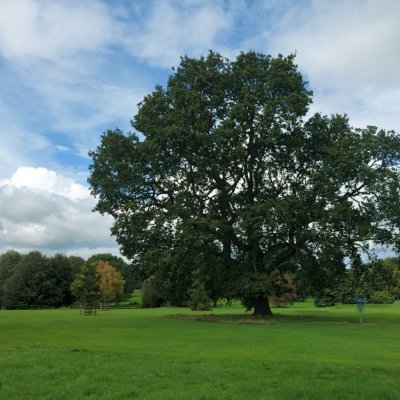dio la vuelta
- Dictionary
dio la vuelta
A phrase is a group of words commonly used together (e.g., once upon a time).
a. he turned around (masculine)
A word or phrase that is masculine (e.g., el libro).
¿A dónde se fue Dan? - Dio la vuelta porque se le olvidó el teléfono en la casa.Where did Dan go? - He turned around because he forgot his phone at home.
b. she turned around (feminine)
A word or phrase that is feminine (e.g., la manzana).
Dio la vuelta tan pronto vio que su ex estaba en la fiesta.She turned around as soon as she saw that her ex was at the party.
c. turned around
Marta dio la vuelta cuando se dio cuenta que estaba oscureciendo.Marta turned around when she realized that it was getting dark.
2. (formal) (you went in the opposite direction; second person singular)
A word or phrase used to refer to the second person formal “usted” by their conjugation or implied context (e.g., usted).
a. you turned around
Si dio la vuelta cuando vio la calle cortada, hizo bien.If you turned around when you saw the street was cut off, you did the right thing.
a. he went for a walk (masculine) (on foot)
A word or phrase that is masculine (e.g., el libro).
Parece que papá se está sintiendo mejor porque dio la vuelta con el perro más temprano.It looks like Dad is feeling better because he went for a walk with the dog earlier.
b. she went for a walk (feminine) (on foot)
A word or phrase that is feminine (e.g., la manzana).
¿Qué hizo Susana cuando llegó del trabajo? - Dio la vuelta y comió algo por el barrio.What did Susana do when she got in from work? - She went for a walk and ate something in the neighborhood.
c. went for a walk (on foot)
Wanda dio la vuelta y encontró un café cerca donde podemos desayunar mañana.Wanda went for a walk and found a café nearby where we can have breakfast tomorrow.
d. he went for a ride (masculine) (on a vehicle)
A word or phrase that is masculine (e.g., el libro).
Hay que ir a ayudar a Carlos. Dio la vuelta y se le pinchó una llanta.We need to go help Carlos. He went for a ride, and got a flat tire.
e. she went for a ride (feminine) (on a vehicle)
A word or phrase that is feminine (e.g., la manzana).
No vas a creer lo que le pasó a Gloria. Dio la vuelta y encontró un gatito en el medio de la carretera.You're never going to believe what happened to Gloria. She went for a ride, and found a kitten in the middle of the road.
f. went for a ride (on a vehicle)
Tere dio la vuelta en mi auto y aún no ha vuelto.Tere went for a ride in my car and still hasn't come back.
4. (formal) (second person singular)
A word or phrase used to refer to the second person formal “usted” by their conjugation or implied context (e.g., usted).
a. you went for a walk (on foot)
Cuando dio la vuelta, ¿pasó por la Puerta de Toledo?When you went for a walk, did you go by the Puerta de Toledo?
b. you went for a ride (on a vehicle)
¡No puedo creer que dio la vuelta en el descapotado sin mí!I can't believe you went for a ride in the convertible without me!
Examples
Machine Translators
Translate dio la vuelta using machine translators
Random Word
Roll the dice and learn a new word now!
Want to Learn Spanish?
Spanish learning for everyone. For free.
















